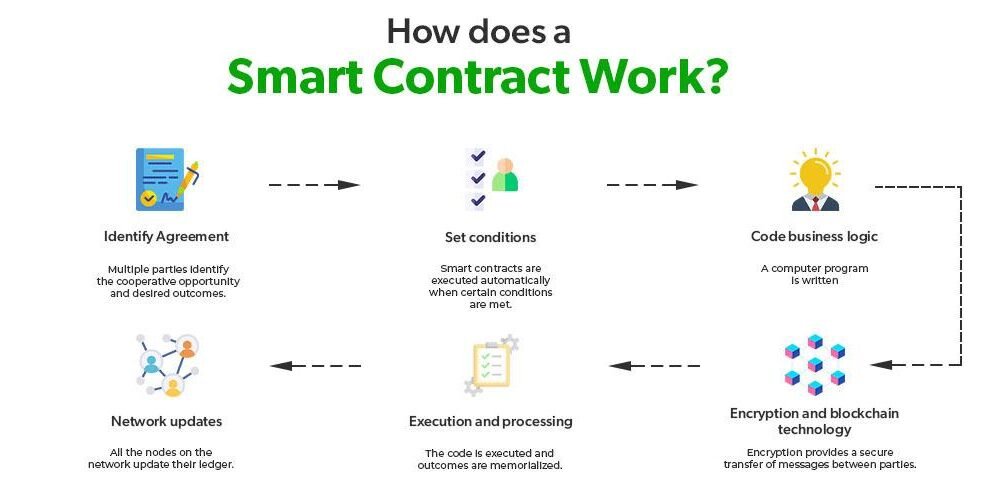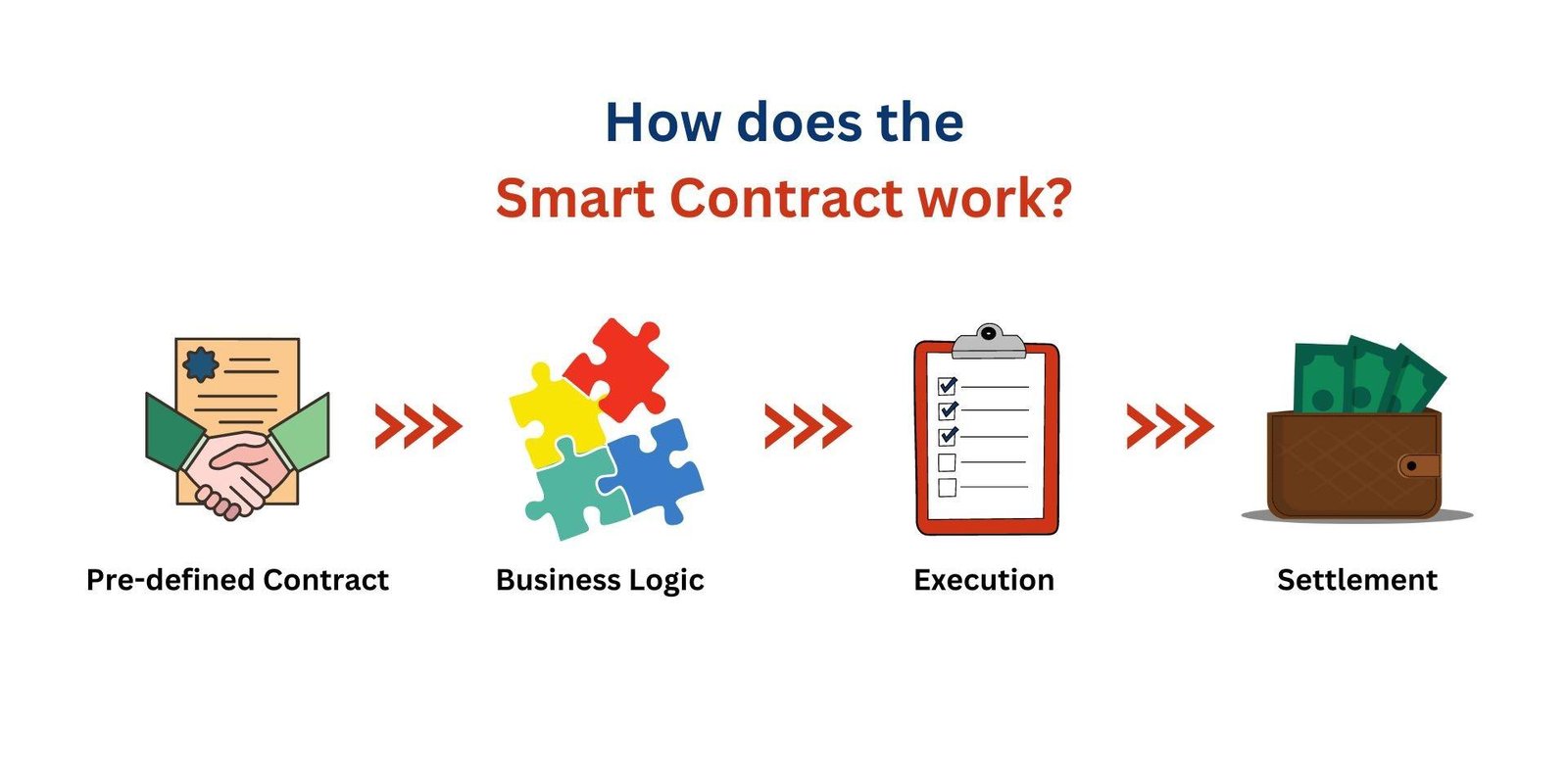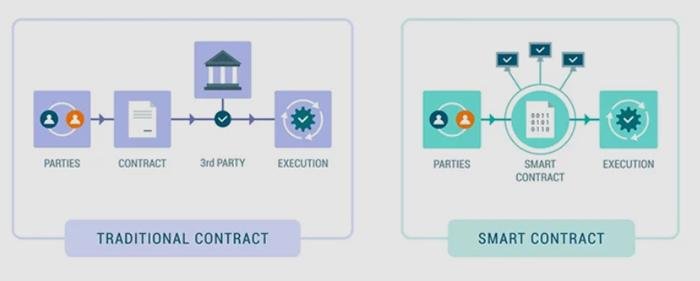Smart Contracts: A New Paradigm for Legal Practice

Introduction
In today’s world, technology is transforming every part of our lives, and the legal field is no exception. One of the most promising developments is the advent of smart contracts. These digital agreements, powered by blockchain technology, are designed to automatically execute when certain conditions are met. Smart contracts promise to simplify transactions, increase transparency, and reduce the complexity of legal agreements. As these contracts gain traction, they challenge traditional legal practices and change the role of lawyers. This article explores what smart contracts are, how they work, and their potential to revolutionize the legal industry, while also balancing automation with human judgment. Join us as we look into this exciting intersection of law and technology, where the future of contracts is being reshaped.

Exploring the Mechanics of Smart Contracts in Legal Frameworks
Smart contracts are electronic agreements that self-activate once predefined conditions are fulfilled. They offer several advantages:
- Trustlessness: Parties can make agreements without needing to trust each other, as the contract is automatically enforced by code.
- Transparency: All parties can view the terms and execution history, creating an environment of accountability.
- Speed: Transactions are completed almost instantly, avoiding the delays typical of traditional legal processes.
However, the adoption of smart contracts requires careful consideration of how they fit into existing legal systems. One important factor is whether these contracts are legally recognized, which varies across different countries. Here’s a quick look at how some jurisdictions handle smart contracts:
| Jurisdiction | Legal Status | Enforcement Mechanisms |
|---|---|---|
| U.S.A. | Generally recognized | State contracts law applies |
| EU | Varies by member state | Regulatory frameworks in development |
| Singapore | Legally binding under certain conditions | Contracts (Rights of Third Parties) Act |
You May Also Like: Legal Challenges and Risks Associated with Smart Contracts

The Benefits and Challenges of Integrating Smart Contracts into Legal Practices
The use of smart contracts offers many benefits to law firms:
- Efficiency: Smart contracts automatically execute terms, saving time and reducing the need for intermediaries.
- Transparency: All parties can see the terms and track the contract’s execution, fostering trust.
- Security: Blockchain guarantees that once a contract is completed, it cannot be modified, minimizing the likelihood of conflicts.
However, there are challenges to integrating smart contracts into legal practice. Legal recognition remains a significant hurdle in many places, and some jurisdictions lack clear guidelines on their enforceability. The complexity of coding these contracts can also lead to errors, which may cause unintended results. To avoid these problems, lawyers must gain technical expertise in blockchain and smart contracts. Privacy issues and regulatory compliance are also complicated in a decentralized environment, requiring a careful balance between new technology and traditional legal rules.

Best Practices for Law Firms to Embrace Smart Contract Technology
For law firms considering the use of smart contracts, it’s important to follow a systematic approach to minimize risks and maximize benefits:
- Education and Training: Law firms should invest in training their staff to understand blockchain technology, smart contract coding, and legal implications.
- Collaboration with Tech Experts: Working with technology firms can help law firms integrate smart contracts effectively while ensuring compliance with legal standards.
- Clear Protocols: Firms should create guidelines for which types of contracts are best suited for automation and blockchain integration.
- Gradual Adoption: A phased approach to using smart contracts allows firms to address technical challenges and client concerns over time.
- Client Feedback: Soliciting client feedback helps ensure that the transition to smart contracts builds trust and meets client needs.
By adopting these best practices, law firms can leverage the benefits of smart contracts while reducing potential risks.
| Key Considerations | Benefits |
|---|---|
| Education and Training | Enhanced understanding of technology |
| Collaboration with Tech Firms | Access to expertise and resources |
| Clear Protocols | Streamlined processes and reduced risks |
| Feedback from Clients | Improved trust and client satisfaction |

Future Trends: Navigating the Evolving Role of Smart Contracts in Law
The role of smart contracts in legal practice is growing, and their use is likely to expand beyond simple transactions. Below are a few emerging trends to keep an eye on:
- Innovation in Legal Services: Lawyers will offer more specialized advice to help clients implement smart contracts.
- Regulatory Developments: Governments may introduce new laws to govern the use of smart contracts in business and commerce.
- Interoperability: Efforts to create standards for smart contracts that work across different blockchain platforms could improve their use globally.
As the legal industry becomes more familiar with smart contracts, legal professionals will need to understand how to use them within existing regulations while addressing ethical concerns.
To Wrap It Up
Smart contracts are not just a tool; they are transforming the way legal services are delivered. While integrating these digital contracts into mainstream legal practice presents challenges, their benefits are undeniable. They offer greater efficiency, transparency, and security, providing an opportunity for lawyers to improve their practices and better serve their clients.
As we move forward, the legal community must embrace these innovations with open minds. The future of law may be shaped by technology, but it will still rely on the core principles of justice and fairness. By understanding and adopting smart contracts, legal professionals can help create a more efficient, transparent, and accessible legal system. The future of legal practice is being reimagined, and smart contracts will play a key role in this evolution.



































































































































































































































